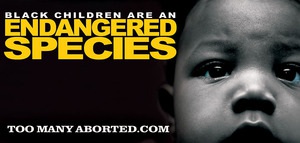Super Bowl Sunday: What You Won't See

On Super Bowl Sunday nearly a billion viewers will see the story of one woman during an anti-choice ad. Here, Filipina author and activist Ninotchka Rosca exposes the reality of all the rest.
Her eighth child, positive for Down syndrome; the doctor at the free maternity clinic delivers the verdict with detachment. She hears there is neither remedy nor recourse. Tough luck. There's little by way of care in the Philippines for those not fully equipped for living. Tough luck. Abortion is criminalized. When the baby dies, six months after his birth, she is relieved but sorry he had to go through all that, poor little thing. She borrows money for his casket and burial. Tough luck.
In 2000, the mayor of Manila issued an order banning government funding for contraception in the city. The Catholic Church has steadfastly opposed both divorce and contraception, preaching abstention, and stirring up even Filipino-Americans to march against Roe v. Wade and the Freedom of Choice Act. In the current campaign for the Philippine presidency, the candidate that opposes the Reproductive Health and Population Development Act is considered the most progressive.
Pam Tebow, once an evangelical missionary to the Philippines, reportedly claims in an ad sponsored by Focus on the Family during the Super Bowl—which paid a reported $3 million to get this on CBS before a billion viewers—that a doctor advised her to get an abortion when she became pregnant while taking antibiotics. From a Filipino doctor, that is highly unlikely. Abortion in the Philippines is allowed only if the mother is in mortal peril. It is not allowed even in cases of incest or rape or potential birth defects. The punishment is loss of license, loss of employment, six years imprisonment for the medical professional. For the woman, all that plus shame and guilt.
In 1987, when Pam Tebow was supposedly disregarding the advice of her doctor, a new Constitution defined conception as the beginning of life and therefore carried a specific ban on abortion. The Catholic Church was ascendant, having participated in the overthrow of the late President Ferdinand E. Marcos. Through the hundred years of banned abortion, desperate housewives in the Philippines have had recourse to traditional beliefs and rumor in an effort to control the number of their children. The anti-malarial quinine tablets were once used to boost the efficacy of herbal abortifacients—roots, leaves and “secret” ingredients swimming in amber liquid sold at the front steps of the Quiapo Church, in Manila's central district. The side effects were massive headaches, nausea, high anxiety and poisoning. Cytotec, a treatment for gastric ulcers, and aspirin have taken its place. For those who cannot afford pills, vigorous massage is a remedy, the hilot (masseuse) kneading the belly. This can hurt a fetus that remains un-aborted; in one case, the child was born crippled because the massage broke his spine in vitro.
For those who manage to find a back-alley abortionist, the means is a rubber tampon thrust into the cervix, kept in place overnight at the risk of blood poisoning and removed when the woman starts bleeding; she then rushes to the hospital emergency room where she is met with contempt. But even the totally ignorant has heard of the most common method for ending a pregnancy: a plunge down a flight of stairs, risking broken bones and burst uteri.
The official number of deaths from self-induced abortion—1,000 per annum—is extremely low; the stigma is such that even death certificates lie. The number of injuries—90,000—is also low since an estimated 500,000 illegal abortions occur annually. While Filipinas may be among the strongest women in the world—physically and psychically—pregnancy itself is high risk. Consider that the country has one of the region's highest maternal deaths at childbirth: 230 per 100,000 live births.
One woman supposedly turns down an abortion and gains a football star for the United States. No choice for Filipinas means 100,000 children in prostitution, child labor, abuse and neglect, and in lives barely above subsistence. If that does not bother the zealous, perhaps the stress on land, sea and air could, so palpable now with the population zooming at 2 percent growth rate to 100 million on territory that's barely a third of Canada. The average number of children per family is five but double that and up to 24 are not unusual.
Where the per capita income is $500 annually, it is an abomination. The 10-year-old with a toddler at her hip while her pregnant mother suckles a baby is an everyday sight. One such mother looks 40; but is 24 years old, living clandestinely in a rich man's tomb at a local cemetery as she raises the next generation of the inexhaustible supply of human beings for trafficking and labor export.
The majority of women cannot have the most basic of women's rights: the right to a divorce and reproductive rights. A Divorce Bill is dead in the water, leaving the Philippines as one of only two countries (counting the Vatican as a country) without divorce. The Repro Health bill is the target of a huge campaign by the Catholic Church and various religious sects; the argument is that its call for contraception and sex education might/could/would lay the basis for legalizing abortion. In 2005, Mayor Rodrigo Duterte of Davao City, Mindanao, offered the equivalent of a hundred dollars to any man who would undergo vasectomy. The Church countered with an offer of free removal of any woman's IUD.
If Pam Tebow did have a free choice, she is almost alone.
More articles by Category: International
More articles by Tag: Reproductive rights



























